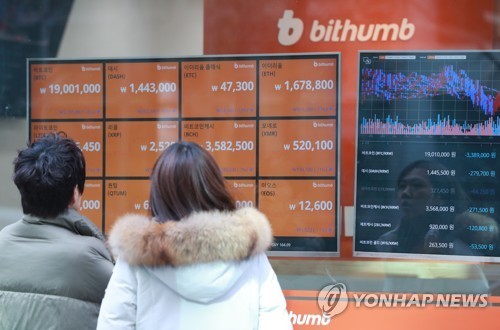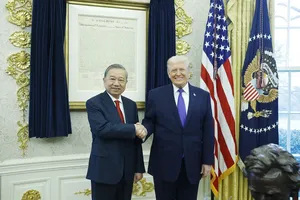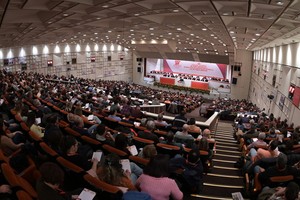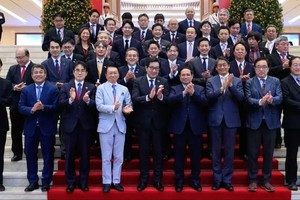
"The ministry is preparing legislation that basically bans any transactions based on a virtual currency through the trading floor," Justice Minister Park Sang-ki told a press briefing. "We have grave concerns about (the craze over) virtual currency and (a shutdown) would be one of the goals we are aiming for."
His remarks are in line with the government's stern resolve to tackle the irrational cryptocurrency market here that many observers now say has reached a critical level. Recently, a major bitcoin exchange was hacked and incurred heavy losses for many investors. Crimes involving cyber money, such as multi-level marketing fraud using virtual currencies, have also been on the rise.
"It has started to resemble gambling and speculation," Park said. "The fact that media have used the phrase 'Kimchi premium' reflects foreigners' assessment that the Korean market is abnormal."
Park dismissed views that strengthening the rules amounts to government market intervention, noting that the United States and Japan have maintained their own ways to limit transactions.
The government has held a series of ministerial-level meetings to discuss ways to calm the market and prevent negative impacts. The justice ministry suggested the most hard-lined approach of an all-out legal ban on virtual currency transactions.
"Media have covered positive aspects, such as the blockchain technology and so forth, but it'd be misleading if we say the technology can only grow through cryptocurrency," he said. He also added that "virtual currency" may not be the right term and that he would rather call it "a virtual token."
The minister warned of social repercussions that might come from tremendous potential financial losses if the market begins to collapse.
"Virtual currency is not based on an exchange of something with a certain value," he said. "It'd be devastating if the bubble bursts after all the money that should've been invested vanishes as virtual currency."
South Korea's cryptocurrency market is estimated to account for 20-25 percent of the global market in terms of transactions. There are currently about 20 virtual currency exchanges in the country, with the monthly turnover of the top bourse at 56 trillion won (US$52.2 billion) as of December.
Cryptocurrency-related stocks and the virtual coin market suffered more heavy losses shortly after the government announced the plan to potentially ban trading of virtual coins.
The local price of bitcoin plummeted 20.7 percent to 17.79 million won at one point during afternoon trading, according to local cryptocurrency exchange Bithumb.
Local prices for cryptocurrencies are typically about 30 percent higher than those in international markets, with financial authorities warning that a rush of speculative investment into virtual currency is fuelling a surge in prices.
On the junior KOSDAQ stock market, cryptocurrency-related stocks also went into turmoil.
Omnitel Co., which has a stake in Bithumb, had plunged by its daily limit of 30 percent at one point in afternoon trading.
Six other cryptocurrency-related stocks, including VirtualTek Corp. and Vidente Co., saw their stock prices plunge as well. From Yonhap.
























